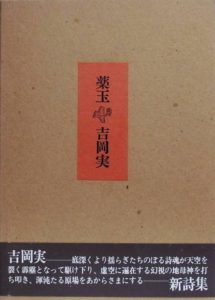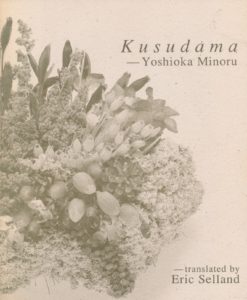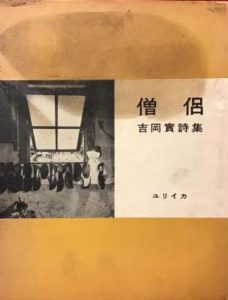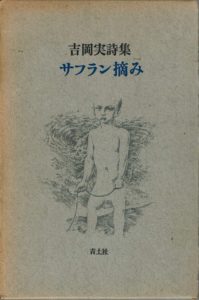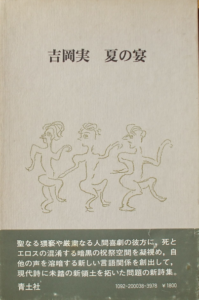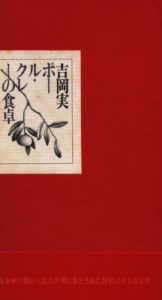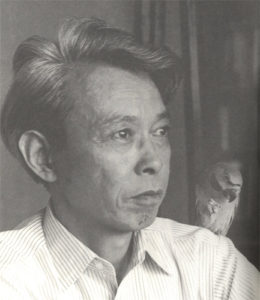 Minoru Yoshioka (1919-1990), the great late-modernist poet, published nine major collections between 1955 and 1984. He was born in the working-class district of Tokyo known as Shitamachi and attended public school until age 15, before going to work as an apprentice at a publisher of medical books. He spent most of the war years in Manchuria as a buck private assigned to caring for the officers’ horses. He was repatriated to Japan by the Americans by the end of 1945, and he began putting his life back together in the ruins of Tokyo where he took a job with a publisher. During his long career as an editor and book designer, the manuscripts of many of Japan’s major literary figures passed through his hands, most notably the collected works of Junzaburō Nishiwaki, who became a close friend and mentor. When in 1959 his second collection, Monks, won a major prize for younger poets, he was embraced by the avant-garde, and in the following years would influence a broad range of younger poets, including Kazuko Shiraishi and Takashi Hiraide. In the 1970s he began experimenting with appropriation and collage as a means of stepping outside his now well-established poetic language by ‘borrowing the voices of others.’ The culmination of these experiments is his magnum opus, Kusudama (1984). Yoshioka died suddenly of kidney failure in 1990. Always surrounded by young poets who would gather to meet him regularly at his legendary hangout, the Top Café in Shibuya, Yoshioka remained excited about new ideas, new forms and experiment to the very end.
Minoru Yoshioka (1919-1990), the great late-modernist poet, published nine major collections between 1955 and 1984. He was born in the working-class district of Tokyo known as Shitamachi and attended public school until age 15, before going to work as an apprentice at a publisher of medical books. He spent most of the war years in Manchuria as a buck private assigned to caring for the officers’ horses. He was repatriated to Japan by the Americans by the end of 1945, and he began putting his life back together in the ruins of Tokyo where he took a job with a publisher. During his long career as an editor and book designer, the manuscripts of many of Japan’s major literary figures passed through his hands, most notably the collected works of Junzaburō Nishiwaki, who became a close friend and mentor. When in 1959 his second collection, Monks, won a major prize for younger poets, he was embraced by the avant-garde, and in the following years would influence a broad range of younger poets, including Kazuko Shiraishi and Takashi Hiraide. In the 1970s he began experimenting with appropriation and collage as a means of stepping outside his now well-established poetic language by ‘borrowing the voices of others.’ The culmination of these experiments is his magnum opus, Kusudama (1984). Yoshioka died suddenly of kidney failure in 1990. Always surrounded by young poets who would gather to meet him regularly at his legendary hangout, the Top Café in Shibuya, Yoshioka remained excited about new ideas, new forms and experiment to the very end.
In addition to Kusudama, some of his other works (pictured below) are: Monks (1958), Saffron Gathering (1976), Summer’s Banquet (1979), and Paul Klee’s Table (1980).
